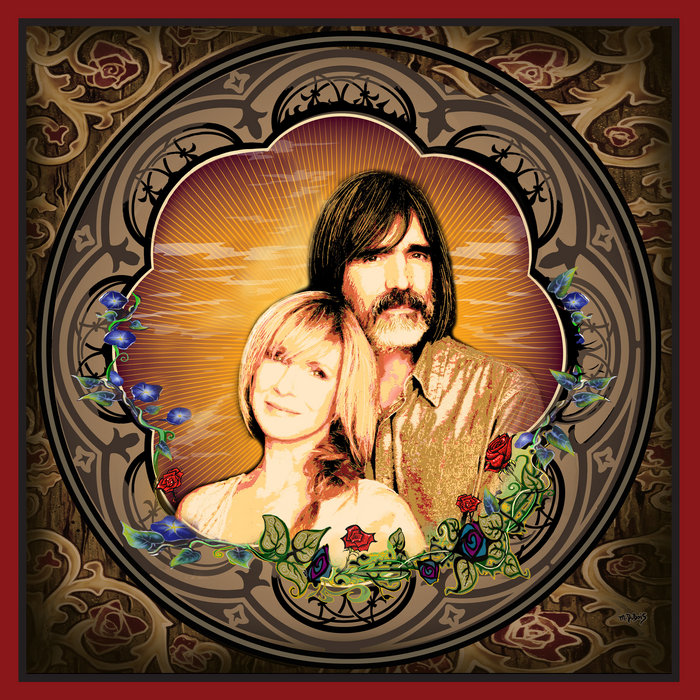LARRY CAMPBELL AND TERESA WILLIAMS PLAY ‘LIVE AT LEVON’S!’
By: Steve Horowitz
In August 2019, Larry Campbell and Teresa Williams felt on top of the world. The married couple just finished months of successfully performing across the country to positive reviews. The two welcomed a return to their adopted home of Woodstock, New York, for a rest and recharge. In the meantime, the duo performed two sold-out nights (18-19 September) at Levon Helm‘s place with a crackerjack band. This included Jesse Murphy on bass and tuba, Justin Gulp on drums, and Brian Mitchell on keyboards, accordion, and harmonica. Campbell and Williams made plans to go out and play again live in 2020, but one can guess what happened next: COVID. The disease hit Campbell especially hard, and the rest of the country shut down.
The good news is that Campbell has returned to health, and the duo has headed back to the road. They have released a 12-track collection from the two shows at Helms’ studio to promote its performances. The material includes a wide selection of songs, including familiar favorites, previously unrecorded songs, and some relatively obscure covers. Although it has been more than three years since the original performances, Live at Levon’s! serves as an excellent introduction to the pair’s live shows.
Live at Levon’s! begins with a lighthearted version of Reverend Gary Davis’s Piedmont gospel stylings of “Let Us Get Together” that encourages the audience to respond. When the duo performs one of Campbell’s original songs, such as “Angel of Darkness” and “It Ain’t Gonna Be a Good Night”, one can hear the crowd’s recognition and approval.
Campbell is known for his tasty guitar-playing chops as a member of Bob Dylan‘s and Levon Helms’ backup bands. His talents are evident here on such different energetic instrumentals as Duke Ellington‘s big band classic “Caravan” and bluegrass Bill Monroe‘s “Old Dangerfield”. Campbell allows the other players to show their stuff before launching into his sophisticated solos. He has a soulful voice, and when he sings lead, as in “When I Stop Loving you”, one can feel his roots in the country blues.
Williams has a more powerful voice with a wide range that can stand out even when blending in with Campbell. She demands attention when singing the lead, no matter what the format. Williams turns Johnny Mullins’s “Success”, made popular by both Loretta Lynn and Sinead O’Connor, into a sad weeper and Louis Prima’s (with Milton Kabak) dirty jump jazz tune “Yeah, Yeah, Yeah” into something jive and greasy. The band does a great job of backing her up and getting the crowd in on the action.
One of the most exciting aspects of Live at Levon’s is the diversity of the material and how well all the musicians handle the changes. They make familiar fare such as Johnny Cash‘s “Big River” and John Sebastian’s “Darling Be Home Soon” into something exciting instead of a tribute to nostalgia. Sure, there is something familiar about it all, but the music here reveals that live music has a life of its own—even after three-plus years in the can.

